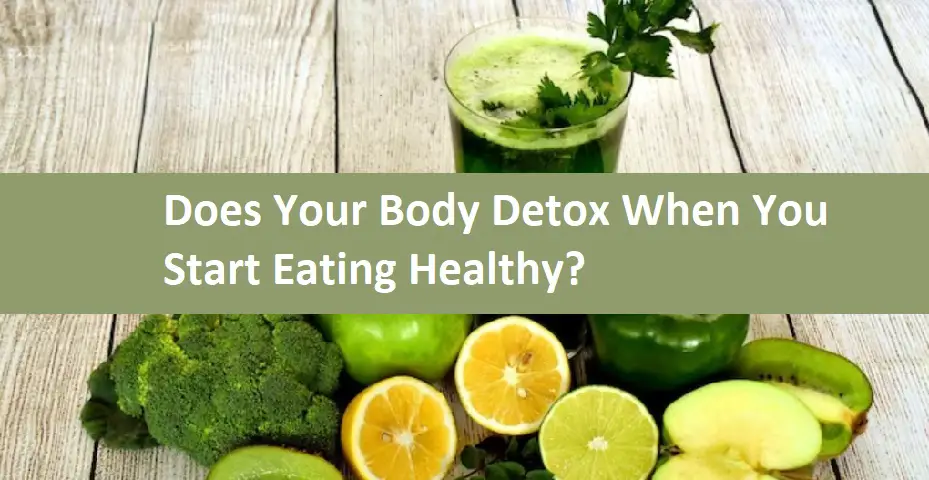In this article, we will explore what clean eating means, how it can help eliminate toxins, and how to prepare a clean eating plan that works for you.
We will also discuss supermarkets that offer senior discounts and carry a wide range of healthy food options, making clean eating more accessible and affordable for older adults.
Whether you’re just starting to explore the world of healthy eating or you’re a seasoned pro, this article will provide valuable information to help you achieve your health and wellness goals.
Explanation of What It Means to “Detox”
The term “detox” refers to the process of removing toxic substances from the body. This can happen naturally through the liver and kidneys, as well as through other systems in the body. However, some people may use the term “detox” to refer to a specific type of diet or cleanse that is designed to support the body’s natural detoxification processes.
The idea behind a detox diet or cleanse is to give the body a break from processed foods, sugar, alcohol, caffeine, and other substances that can place a strain on the liver and other organs. By temporarily eliminating these substances from the diet, the body can focus on eliminating toxins and restoring balance.
It’s worth noting that some detox diets or cleanses may not be based on scientific evidence and may even be harmful. It’s important to approach any dietary changes or cleanses with caution and to consult with a healthcare professional before starting any new diet or supplement regimen.
How Healthy Eating Can Help Eliminate Toxins
Healthy eating can support the body’s natural detoxification processes and help eliminate toxins in several ways:
- Providing antioxidants: Antioxidants are compounds found in many fruits and vegetables that help protect the body against oxidative stress and free radicals, which can damage cells and contribute to chronic diseases. By eating a diet rich in antioxidant-rich foods, such as berries, leafy greens, and nuts, you can help protect your body from toxins.
- Supporting liver function: The liver is the body’s main detoxification organ, responsible for filtering toxins from the blood and excreting them in urine or feces. Eating a diet rich in nutrients that support liver function, such as vitamin C, B vitamins, and amino acids, can help keep the liver functioning optimally and eliminate toxins more efficiently.
- Providing fiber: Fiber helps move waste and toxins through the digestive system and promotes bowel regularity, which can help eliminate toxins from the body. Foods high in fiber include whole grains, fruits, vegetables, and legumes.
- Reducing processed foods: Processed foods are often high in additives, preservatives, and artificial colors and flavors, which can place a burden on the liver and contribute to toxin buildup. By reducing your intake of processed foods and focusing on whole, nutrient-dense foods, you can support your body’s natural detoxification processes.
- Staying hydrated: Adequate hydration is important for flushing toxins out of the body. Drinking plenty of water and other hydrating beverages, such as herbal tea and coconut water, can support detoxification.
Overall, a healthy, balanced diet that emphasizes whole, nutrient-dense foods can help support the body’s natural detoxification processes and eliminate toxins from the body.
What Is Clean Eating?
Clean eating is a dietary approach that emphasizes whole, minimally processed foods and limits or eliminates highly processed foods, added sugars, and artificial ingredients. The goal of clean eating is to focus on eating foods that are as close to their natural state as possible and to promote overall health and wellness.
Foods that are typically included in a clean eating diet include:
- Whole grains, such as brown rice, quinoa, and whole wheat bread
- Fresh fruits and vegetables, including leafy greens, berries, and cruciferous vegetables
- Lean protein sources, such as chicken, fish, tofu, and legumes
- Nuts and seeds
- Healthy fats, such as olive oil, avocado, and coconut oil
Foods that are typically avoided or limited in a clean eating diet include:
- Highly processed foods, such as packaged snacks, fast food, and frozen meals
- Added sugars, such as those found in sugary drinks and desserts
- Artificial sweeteners and flavors
- Trans fats and hydrogenated oils
Clean eating is not a specific diet plan but rather a general approach to eating that prioritizes whole, nutrient-dense foods and minimizes processed and artificial ingredients. The emphasis is on choosing foods that promote health and well-being rather than on strict rules or restrictions.
How to Prepare the Clean Eating Plan?
Preparing a clean eating plan involves several steps:
- Set goals: Before you start, it’s important to set goals for yourself. Think about what you want to achieve with a clean eating plan, such as weight loss, improved energy levels, or better overall health.
- Stock your pantry: Clean eating involves cooking with whole, minimally processed ingredients, so it’s important to have a well-stocked pantry. Make sure you have plenty of whole grains, such as brown rice and quinoa, as well as fresh fruits and vegetables, lean proteins, and healthy fats, such as olive oil and nuts.
- Plan your meals: Planning your meals ahead of time can help you stay on track with your clean eating goals. Choose recipes that feature whole, nutrient-dense ingredients and plan meals that balance protein, fiber, and healthy fats. You can also make meal prep easier by cooking in batches and storing leftovers for later.
- Choose snacks wisely: Snacks can be an important part of a clean eating plan, but it’s important to choose wisely. Opt for fresh fruits and vegetables, nuts and seeds, and low-sugar protein bars or shakes. Avoid processed snack foods, such as chips and candy.
- Stay hydrated: Drinking plenty of water is an important part of a clean eating plan. Make sure you’re drinking enough water throughout the day, and consider adding in herbal tea or coconut water for added hydration.
- Be flexible: Remember that clean eating is not about strict rules or deprivation. It’s important to be flexible and allow for the occasional indulgence. Focus on making healthy choices most of the time, and don’t beat yourself up if you slip up occasionally.
By following these steps, you can create a clean eating plan that works for you and helps you achieve your health and wellness goals.
Supermarkets to Buy Healthy Food with Senior Discounts
There are several supermarkets that offer senior discounts and carry a wide range of healthy food options:
| Whole Foods | Whole Foods Market is a grocery store chain that specializes in organic and natural foods. They offer a 10% discount to customers who are 60 years or older on select days of the week. |
| Safeway | Safeway is a supermarket chain that offers a variety of healthy food options, including organic produce, whole grains, and lean proteins. They offer a Senior Savings Day every week, where customers who are 55 years or older can save 10% on their grocery purchases. |
| Kroger | Kroger is a large grocery store chain that offers a variety of healthy food options, including organic produce, whole grains, and natural meats. They offer a Senior Discount Day every week, where customers who are 60 years or older can save 5% on their purchases. |
| Albertsons | Albertsons is a supermarket chain that offers a variety of healthy food options, including organic produce, whole grains, and natural meats. They offer a Senior Discount Day every week, where customers who are 55 years or older can save 10% on their purchases. |
| Publix | Publix is a supermarket chain that offers a variety of healthy food options, including organic produce, whole grains, and natural meats. They offer a Senior Discount Day every week, where customers who are 60 years or older can save 5% on their purchases. |
Conclusion
In conclusion, eating healthy can help support the body’s natural detoxification process, leading to a cleaner, more energized feeling. Clean eating, which involves consuming whole, minimally processed foods and avoiding processed and artificial ingredients, can be a helpful approach to promoting health and wellness.
By prioritizing healthy food choices and making small changes over time, anyone can achieve a healthier, happier lifestyle.

Morgan Elfman is a compassionate writer, dedicated caregiver, and passionate advocate for senior well-being. Born and raised with a deep sense of empathy and a natural inclination towards service, Morgan has devoted her life to making a positive impact on the lives of seniors.
As a writer for www.choiceseniorlife.com, Morgan utilizes his skills to create insightful and informative content that addresses the unique needs and challenges faced by seniors and their families. Her articles not only provide valuable information on health, lifestyle, and care options but also strive to inspire and empower seniors to lead fulfilling lives.
